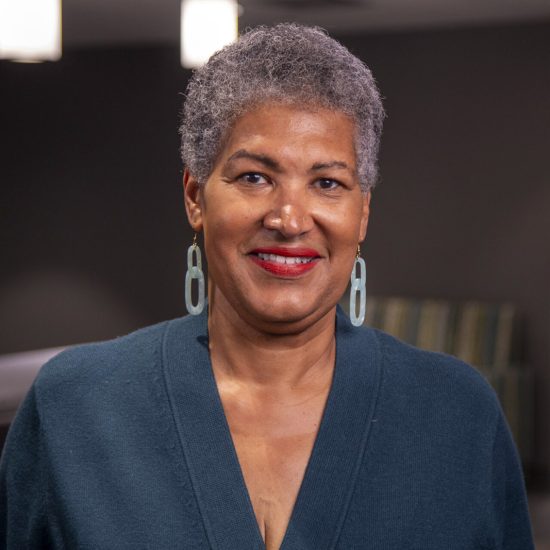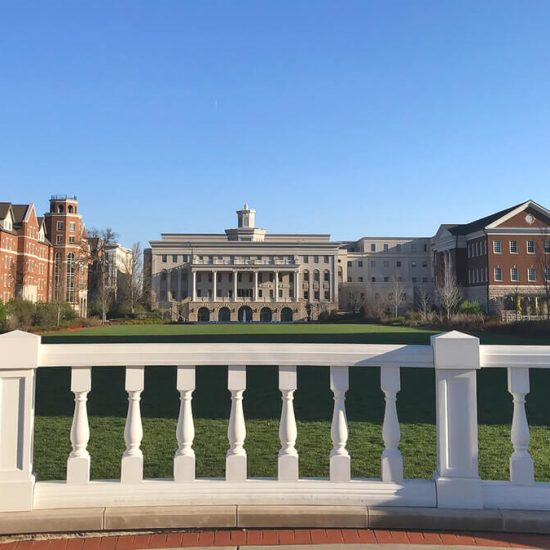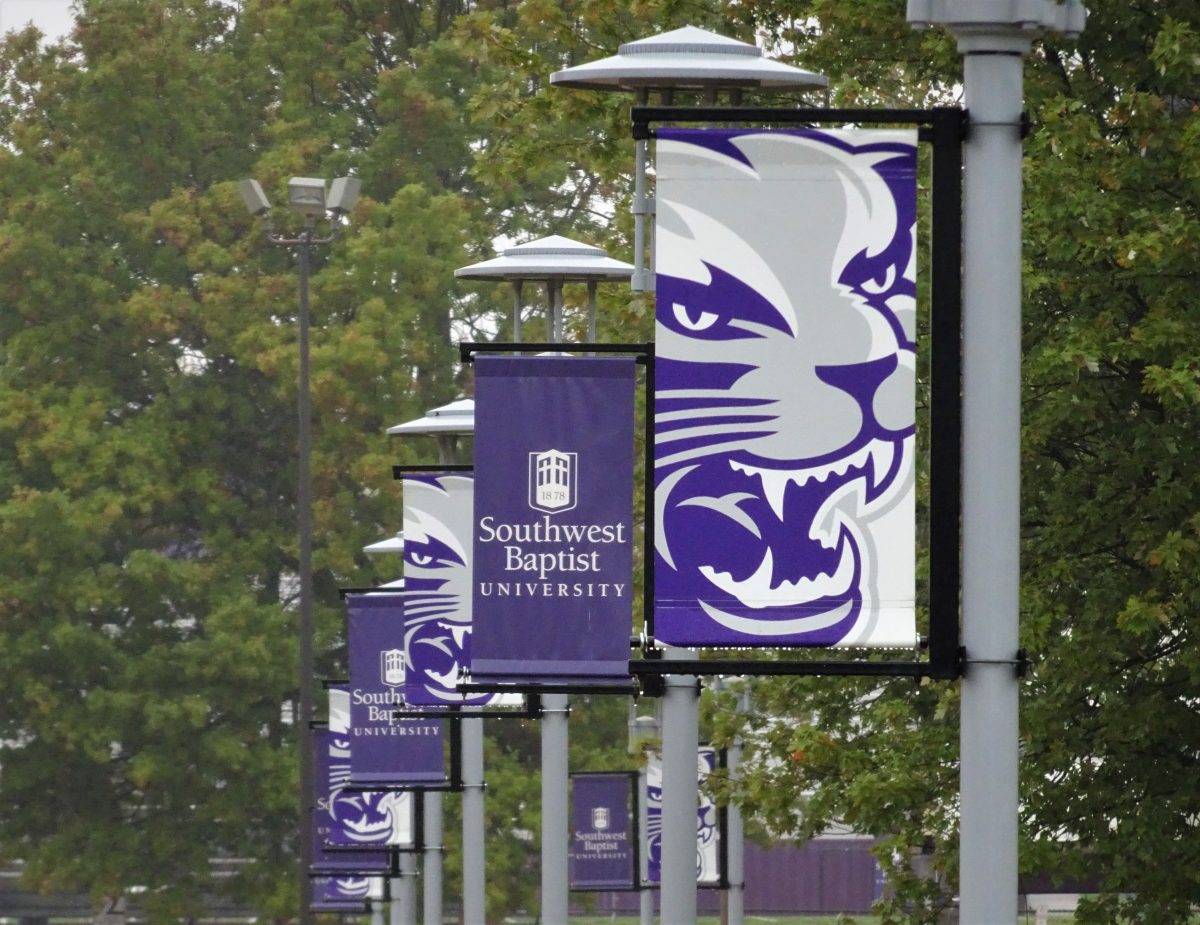
Seventeen months after Southwest Baptist University found its accreditation on probation, the school in Bolivar, Missouri, is trying to convince the Higher Learning Commission that the problems have been fixed. But as the HLC conducts a review on Monday (April 24) to consider actions taken by SBU leaders since the probation decision in November 2021, a key problem remains unresolved — the school’s governing documents disagree on critical issues that contributed to the probation status.
The problem emerged after the Missouri Baptist Convention pressured SBU’s leaders to adopt new governing documents to give greater legal control to the MBC and to narrow the theological parameters for faculty and administrators. After initially meeting resistance from SBU trustees, the MBC deviated from its own rules for selecting trustees to put new individuals on the board. With this shift occurring, the school’s president resigned in 2020 amid efforts to fire him barely two years after his election. The trustees also in 2020 adopted the proposed governing documents demanded by MBC leaders.
However, the MBC’s victory didn’t last long. The HLC started investigating complaints about the MBC’s interference in SBU’s governance. And a local Baptist layman, an SBU professor, and an SBU student successfully petitioned the court to intervene in SBU’s effort to have its new governing articles adopted. After SBU’s trustees saw a preliminary report from the HLC, they suddenly withdrew their proposed new governing articles in August 2021. But that wasn’t enough to stop the probation decision.
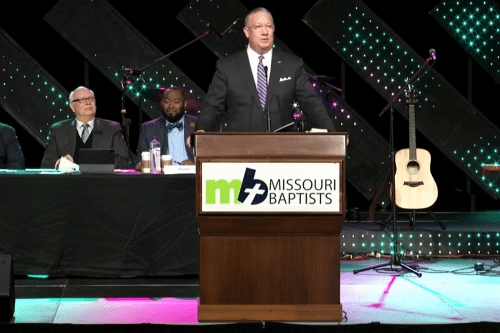
Screengrab as Southwest Baptist President Rick Melson speaks at the Missouri Baptist Convention annual meeting in Branson on Oct. 26, 2021.
In between the August move and the probation designation in November, new SBU President Rick Melson stood before the messengers at the MBC’s 2021 annual meeting and further complicated the governance issues. Although the articles had been withdrawn, he insisted the trustee bylaws adopted at the same time “are in place.” Although the MBC must approve changes to both documents, only the articles require legal approval. But Melson did not explain how SBU or its trustees would act in the cases when the old articles are still in effect and the new bylaws “in place” contradict one another — though he did say SBU would follow the doctrinal statements adopted in the new bylaws instead of the statement in the governing articles.
The changes to the governing documents came as a demand from MBC Executive Director John Yeats. Last month, he announced his plan to transition out of that role after 12 years of leading the convention. The press release about his announcement referenced changes to governing documents as a key accomplishment: “updating the governing documents of the MBC and its entities and commissions, as well as creating greater synergy between the MBC and its entities and commissions.” Not only is that work unfinished for SBU, but that statement left out the fact that during Yeats’s tenure, two of the three educational entities saw their accreditation placed on probation by the HLC (with Hannibal-LaGrange University receiving that designation last year).
During the 2021 MBC meeting, Melson also promised to continue “working collaboratively with the Missouri Baptist Convention, our board, our faculty leadership, our accrediting agency and body the Higher Learning Commission” to refine the governing articles and bylaws. The MBC messengers even passed a recommendation from the MBC Executive Board to grant SBU more time “to navigate the complexities raised by third parties regarding SBU governing documents, academic freedom, and faculty relationships.” Melson told messengers he hoped to be able to resolve the issues by the next year.
However, at the MBC annual meeting a year later, in October 2022, no new articles or bylaws were presented to messengers. That leaves, according to SBU, the old articles and the new bylaws in place — even though those documents contradict each other. Since the MBC messengers would have to approve changes to the articles or the bylaws, that conflict embedded in the governing documents cannot be rectified before late October. While the HLC will announce its two-year decision in early November, it will likely be made before the MBC meeting. Yet, the HLC specifically highlighted the issue of governing documents in its rationale for putting the school’s accreditation on probation.
“The initiation of changes to governing documents at the request of the Missouri Baptist Convention (MBC) without prior HLC approval, which would have recharacterized the institution as an entity of MBC with the latter as its sole member and which were only recently rescinded by the Institution’s governing board before becoming legally binding, raises significant questions about the independence and autonomy of the Institution’s governing board to make decisions in the best interests of the Institution,” the HLC wrote.
While the current governing articles do not include the language about the MBC as sole member, that language is in the bylaws Melson said “are in place.” Additionally, the bylaws insist SBU trustees have a fiduciary responsibility to both SBU and the MBC, while the older articles still in effect say the trustees’ sole fiduciary responsibility remains to SBU.
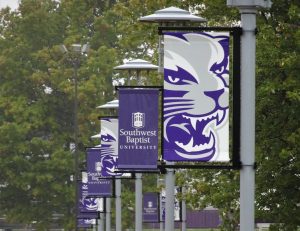
(Brian Kaylor/Word&Way)
Another area of contradiction between the governing articles and the bylaws is in the treatment of the school’s guiding statement of faith. The HLC specifically mentioned concerns about the faith statements in its probation decision in 2021, noting that “confusion regarding three different ‘statements of faith,’ additional misunderstandings regarding what curricular content is permitted to be covered in the classroom contributed to a vote of no confidence by a substantial portion of the faculty.” The continuing confusion over the statements, the HLC added, “has destabilized and eroded the sense of academic freedom and freedom of expression at the Institution.”
In the current articles, the statement of faith is one adopted by trustees in 1921. But according to the bylaws that “are in place,” there are four statements of faith, with the Baptist Faith & Message 2000 being the primary one but with “supplemental statements” also governing the institution. Those statements are the 1978 Chicago Statement on Biblical Inerrancy, the 1988 Danvers Statement on Biblical Manhood and Womanhood, and the 2017 Nashville Statement on sexuality.
Although the conflict and confusion remain in the governing documents, SBU’s trustees have attempted to resolve this issue for the HLC by passing a trustee resolution in October 2022 declaring the BF&M 2000 to be “the only confessional document” for the school. The resolution added that the trustees affirmed the other three statements, adding the school “uses these three statements to interpret and clarify the Baptist Faith and Message 2000.” Despite the trustee resolution, the language in the governing documents would trump any claim that the BF&M 2000 is the “only” official statement of faith.
The HLC also raised concerns about academic freedom and “the board’s ability to carry out its duties effectively and the Institution’s ability to implement shared governance.” Thus, SBU’s trustee voted on April 18 to adopt a Compact for Shared Governance and a Statement on Academic Freedom, which SBU said in a press release was “both designed to show support for the university’s faculty, staff, and administration as well as to provide additional clarity around their respective responsibilities and privileges.” Even more so, these documents approved six days before the HLC’s review would seem designed to alleviate concerns that led to the probation decision. In fact, both documents cite HLC criteria to explain how the school sees itself as now meeting those expectations for accreditation.
Another unresolved issue that might not cause SBU problems with the HLC involves the treatment of former faculty members who were attacked and forced from their employment. The HLC in its probation decision noted that faculty members were denied tenure or promotion after some trustees acted “in ways that were not supported by the Institution’s policies.” While the trustees last week approved the new documents and took other steps over the past two years to improve the tenure process and the rights of faculty members, those actions do not help the faculty members who were denied tenure or promotion and forced from the institution.

